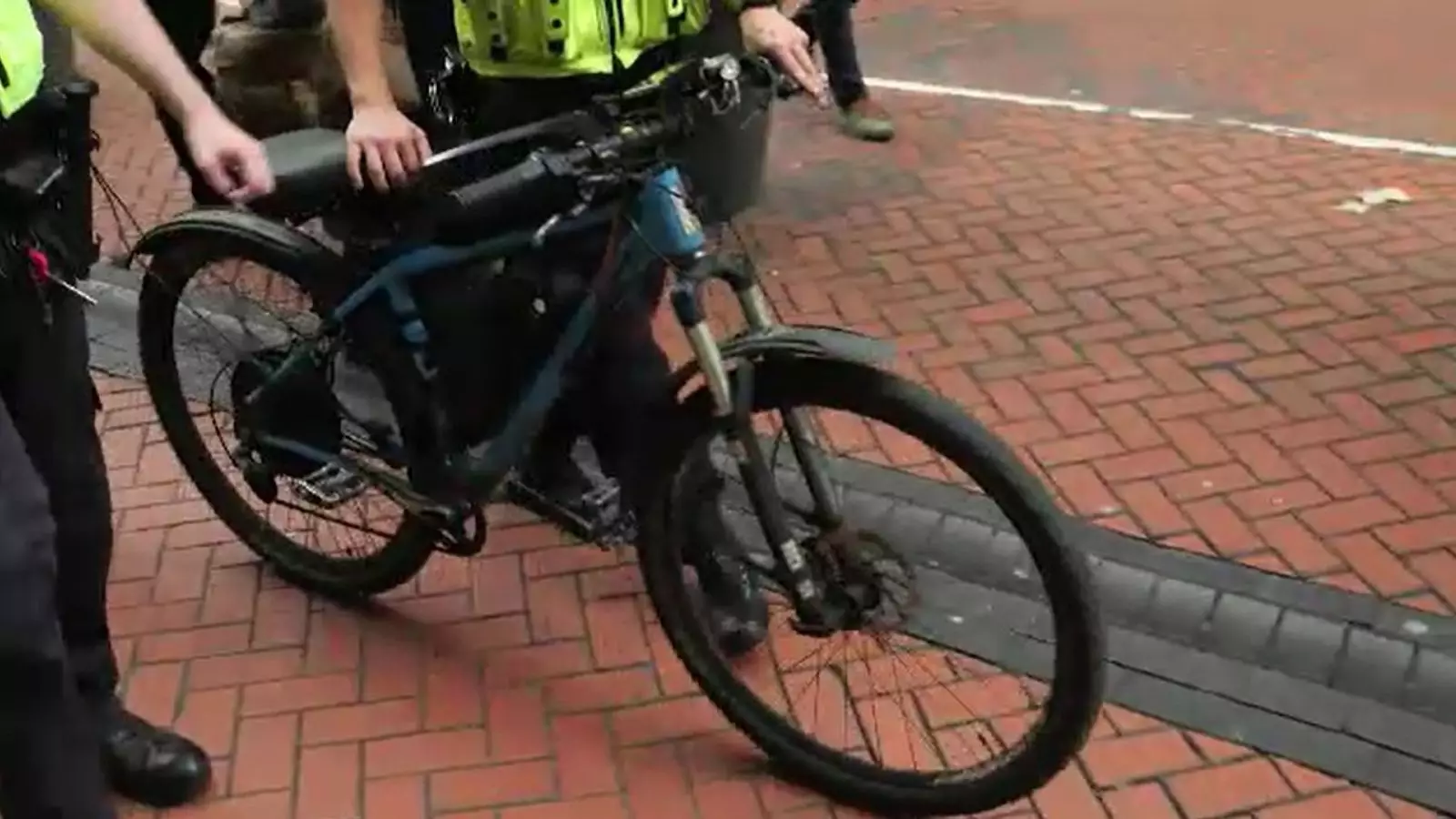Urban centers like Birmingham’s New Street serve as bustling hubs of commerce and activity, yet beneath the lively surface lurks a growing menace that threatens public safety and community well-being: illegally modified e-bikes. These aren’t just minor infractions of regulation—they are ticking time bombs that endanger pedestrians, cyclists, and even the riders themselves. The police operation unveiled in the bustling city corridor reveals how deep-rooted and pervasive this issue has become, and it demands more than just surface-level enforcement. It exposes the complex intersection of economic necessity, regulation evasion, and safety oversight in our rapidly evolving urban landscape.
While intended as convenient transport for gig workers and delivery drivers, these bikes often transcend legal bounds through covert modifications. Hackers and technicians who indulge in clandestine upgrades enhance power, speed, and performance beyond what legal limits allow. The result is a vehicle that accelerates dangerously fast, capable of reaching speeds that compromise rider control and pedestrian safety. What begins as an apparent upgrade for efficiency morphs into a public health hazard, leading to reckless riding, injuries, and chaos in crowded streets. The visibility of police confiscations underscores a troubling reality—but it also hints at a deeper societal dilemma: Are we doing enough to regulate, educate, and protect?
The Societal Implications of a Flawed System
This crackdown reflects not merely law enforcement’s response but also exposes systemic shortcomings. For one, the proliferation of illegal modifications signals a failure in oversight—regulatory gaps that criminals exploit. It also highlights economic disparities; many delivery drivers depend on these bikes to make a living, and being caught with illegal modifications risks their livelihood. The frustration and desperation of workers like Demoz illustrate a broader dilemma: individuals balancing survival with compliance, often feeling pushed into risky corners because of job insecurity and inadequate support.
Furthermore, the approach of seizing and crushing bikes, while necessary for immediate safety, feels like an insufficient, bandaid solution to a complex problem rooted in structural neglect. It neglects the root causes—lack of affordable, legal alternatives; insufficient regulation tailored to emerging technology; and inadequate public education about the risks involved. Policymakers need to consider a more nuanced strategy that combines strict enforcement with community engagement, awareness campaigns, and accessible legal options. Ignoring these aspects risks turning the streets into a battleground between regulators and covert operators, with the latter always finding new ways to circumvent rules.
Questioning the Role of Corporate Responsibility
Major food delivery companies—Deliveroo, Uber Eats, Just Eat—claim to remind their riders of safety obligations and to work with authorities on security checks. But their words often clash with practical realities. The prevalence of illegal bikes suggests a systemic failure in their oversight mechanisms, which are supposed to ensure rider safety and compliance. While these corporations can set policies and enforce standards internally, their capacity to monitor every rider’s behavior, especially when economic pressures push them toward shortcuts, is limited. The reliance on voluntary reminders and reactive measures reveals a superficial commitment—more PR than genuine responsibility.
Legally, these firms have an ethical obligation to ensure their workforce operates within the bounds of the law. But more importantly, they should advocate for systemic changes—supporting affordable, legal, and sustainable options for riders, advocating for localized regulations tailored to technological advances, and investing in safety training. Without such proactive engagement, they risk fostering a cycle where drivers are caught in a regulatory grey area, driven by necessity rather than choice, with little regard for long-term safety implications.
The Underlying Power Struggles and Future Outlook
The enforcement operation becomes a microcosm of a larger power struggle—between regulation and innovation, legality and necessity, enforcement and economic survival. The police, immigration officials, and government agencies are forced into reactive mode, trying to control a rapidly changing environment they are often unprepared for. The rise in arrests and confiscations might curb the issue temporarily but does little to address the root causes—poverty, insufficient legal channels, and weak technological oversight.
Looking forward, a sustainable strategy must embrace innovation, regulation, and community cooperation. Governments should work closely with manufacturers, tech experts, and community stakeholders to develop safe, legal alternatives and implement smarter enforcement mechanisms. This might include modernizing regulations to accommodate the realities of electric mobility, creating incentive structures for legal compliance, and increasing public awareness about safety. Only through a comprehensive and empathetic approach can cities hope to tame this dangerous trend before it spirals further out of control.
The presence of illegal modified e-bikes on our streets underscores a deeper need for balanced, vigilant, and community-centered solutions. We are at a crossroads—where will we invest our energy: in relentless punishment, or in building a system that sustains safety, fairness, and technological progress? That decision will shape our urban futures profoundly.

